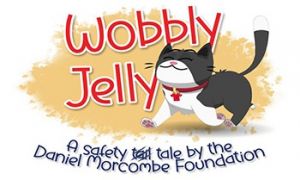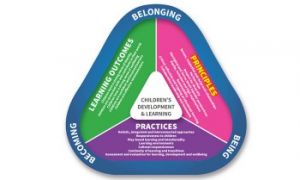Many different people from different backgrounds, religions, beliefs and traditions make up Australia. We offer such diversity and provide such a multicultural society that it’s part of the unique qualities about Australia. Those who have come from near and far call Australia their home and it’s our social acceptance and Harmony that make Australia a better place.
Celebrating Multiculturalism with Children
Throughout the year there are many opportunities for educators to celebrate different multicultural days within their early educational setting. For example, Harmony Day, Chinese New Year, Holi, Diwali and many more. It’s important to celebrate our cultural diversity and show mutual respect to everyone in Australia. It’s a reminder that people from over 200 countries make up Australia, over 300 languages are spoken throughout Australia and over half the population were born overseas. It’s a time to celebrate, a time to come together...
How to Celebrate Multiculturalism
When working with young children, it’s important to create an understanding that all families have their own traditions, beliefs and cultures and we should treat each other with respect and dignity, regardless of where we come from or what we believe.
There are many different ways that multiculturalism can be celebrated with children. Some simple ideas can include:
- Pre plan cultural days ahead of time.
- Sing songs in different languages (ask families to write down words)
- Dance to music from different countries (ask families for music)
- Learning hello and goodbye in different languages
- Cooking foods from around the world (ask families for recipes)
- Getting children to dress up in their native costume
- Taking photos of each family and adding them to a world map of where they originally came from and so much more! (do it during morning drop off or afternoon pick up)
- Ask families to bring in a plate of food from their cultural background (give a list of prohibited foods)
- Play group games from around the world.
- Find where each child’s name comes from and the meaning (these can be displayed)
- Display posters/images of children people from different countries
- Continually have group discussions with the children on cultural diversity, acceptance, similarities and differences between people etc.
Getting Families Involved In Multiculturalism
Celebrating multiculturalism is a great opportunity to get families involved. It could be setting up a multicultural afternoon picnic or asking parents to bring in something special (from their country) to share with the group. Another idea is to ask families to share their favourite cultural recipes that can be cooked and shared during lunch. These recipes can be collected and compiled into a book. There are so many different ways to get parents involved!
Multiculturalism is about community participation, inclusiveness, celebrating diversity, respect and a sense of belonging for everyone.


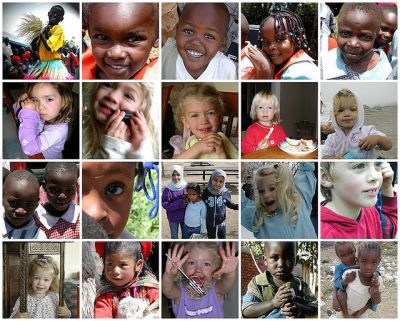

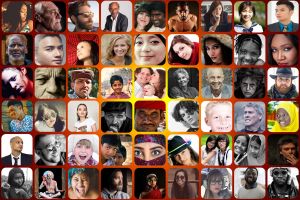
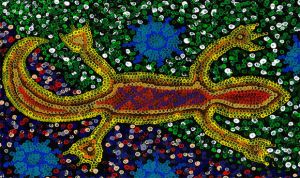

 Here’s a comprehensive Mobile Phone and Smart Watch Policy tailored for early childhood education and care (ECEC) services in Australia, aligned with the latest 2025
Here’s a comprehensive Mobile Phone and Smart Watch Policy tailored for early childhood education and care (ECEC) services in Australia, aligned with the latest 2025 Across the early childhood education and care sector, educators are sounding the alarm: current staffing ratios are insufficient to deliver safe, meaningful, and developmentally appropriate
Across the early childhood education and care sector, educators are sounding the alarm: current staffing ratios are insufficient to deliver safe, meaningful, and developmentally appropriate Thanks to the new National Model Code and upcoming regulatory changes under the National Quality Framework (NQF), early childhood services across Australia must now implement
Thanks to the new National Model Code and upcoming regulatory changes under the National Quality Framework (NQF), early childhood services across Australia must now implement In the quiet hum of a weekday morning, something felt off. Preschool doors opened, but classrooms remained silent. No greetings. No redirection. No educators. And
In the quiet hum of a weekday morning, something felt off. Preschool doors opened, but classrooms remained silent. No greetings. No redirection. No educators. And A: In early childhood education and care (ECEC) settings across Australia, mobile phone use by educators is now subject to strict national reforms aimed at
A: In early childhood education and care (ECEC) settings across Australia, mobile phone use by educators is now subject to strict national reforms aimed at The end of the year is a busy and emotional time in early childhood services. Many services close for a short period over Christmas, and
The end of the year is a busy and emotional time in early childhood services. Many services close for a short period over Christmas, and In early childhood education and care, child safety is not just a number—it’s a practice. While educator-to-child ratios are essential, they are only one part
In early childhood education and care, child safety is not just a number—it’s a practice. While educator-to-child ratios are essential, they are only one part Being an educator is both rewarding and demanding. Between planning, documentation, room management, and supporting children’s wellbeing, the workload can feel overwhelming. That’s why practical
Being an educator is both rewarding and demanding. Between planning, documentation, room management, and supporting children’s wellbeing, the workload can feel overwhelming. That’s why practical A: Something as simple as a child asking to braid an educator’s hair—or children braiding each other’s can spark important questions about connection, trust, and
A: Something as simple as a child asking to braid an educator’s hair—or children braiding each other’s can spark important questions about connection, trust, and Here's a comprehensive, sector-responsive policy and procedure framework for the safe use of digital technologies—including CCTV—tailored for early childhood education settings. It balances child safety,
Here's a comprehensive, sector-responsive policy and procedure framework for the safe use of digital technologies—including CCTV—tailored for early childhood education settings. It balances child safety,
